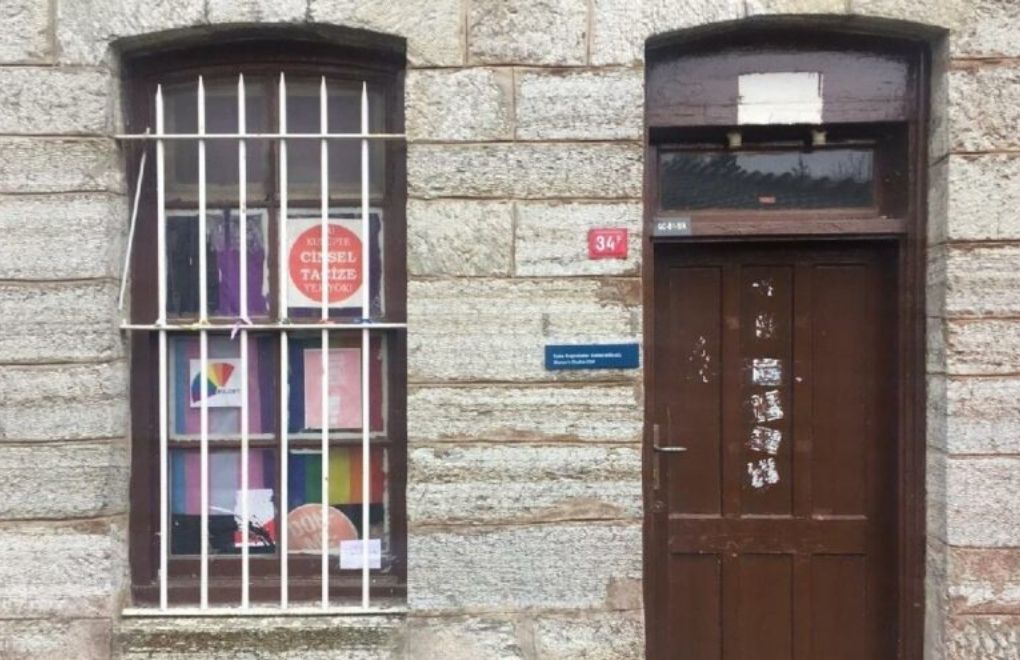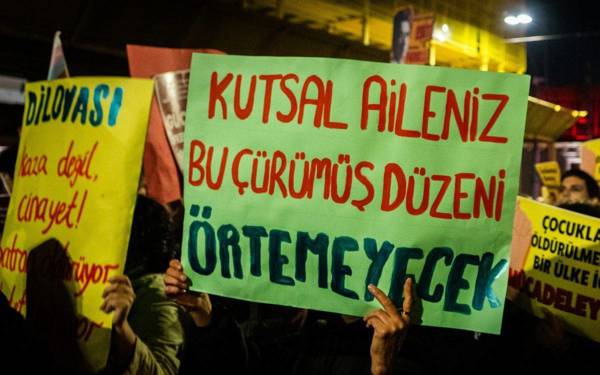Click to read the article in Turkish
"We cannot consider this present situation independently of the country's present situation. At a time when it is decided to withdraw from the İstanbul Convention, a place that can set an example for institutional structures regarded as a must by the convention for the prevention of inequality and violence has been prevented from working.
"However, in 2021, there are now so many people and institutions, both inside and outside the university, that believe in the importance of such fields and work more intensively... This cannot possibly be prevented."
These remarks are uttered by Cemre Baytok, the Coordinator of Boğaziçi University's Commission on Prevention of Sexual Violence (CİTÖK).
Appointed as a rector to Boğaziçi University by President and ruling AKP Chair Recep Tayyip Erdoğan in early January, Prof. Melih Bulu has put CİTÖK office coordinator Cemre Baytok on unpaid leave.
CLICK - Appointed rector appoints men to all positions
Not dismissal, but 'unpaid leave'
In a written notification sent to Cemre Baytok by Boğaziçi Education Tourism (BÜTEK), a company which is affiliated with the Rectorate of Boğaziçi University, it is said, "As per the Provisional Article published in the Official Gazette as part of the coronavirus measures, it has been decided to put you on unpaid leave from April 1 to May 17, 2021."
But what is happening is actually the following: As layoffs have been banned in Turkey during the pandemic, the BÜTEK has put its employee on unpaid leave, just like several other employers across the country.
This decision means the de facto shut down of the CİTÖK. Because Baytok is the only paid employee of the commission.
When a person is subjected to harassment at the university, he or she applies to the CİTÖK. She listens to the complaints about male violence, stalking and sexual assault and guides the complainants.
Baytok is working at Boğaziçi University campus in İstanbul in order to solve the problems of women and LGBTI+s at the university. In other words, it is as if, for some reason, the new rector wants this unit to be de facto shut down, thinking that there will be no such place where women and LGBTI+ students can apply to when they are subjected to violence.
There is also a "hotline" on the webpage of the CİTÖK; the students and personnel of Boğaziçi University targeted by men's violence and harassment can ask for support by calling this number.
While the line has been inactive for some time now, similar talks can be held at the office as well, most of them in person and nearly for an hour. The aim is not always preparing a petition of complaint in the end; the aim is giving the necessary information and sharing problems and concerns. During the pandemic, the office has been having these talks online or by phone.
The institution attempted to be shut down is effective. As a matter of fact, without any exaggeration, it is so effective that it shares its experiences at other universities, women's organizations, LGBTI+ institutions in workshops.
The Commission on Prevention of Sexual Violence identifies the problem for women and LGBTI+s at the university, tries to develop solutions and makes efforts to make sure that the existing mechanism works.
In recent years, several civil society organizations have been inviting Baytok to share her experience at the CİTÖK and to guide them with presentations and workshops. So, CİTÖK has become a more well-known institution which has been asked more and more to share its experiences. They now want that this institution no longer exist at Boğaziçi University. It is impossible to understand this. I would say it is like a joke, but it is not.
Baytok has lashed out at what has been happening. "I am still evaluating the decision," she says. What she specifically emphasizes is the fact that the CİTÖK, with its training and workshops, has already led these units to become more widespread at several universities.
"Even if they shut down this unit, women's works about these issues will continue both at Boğaziçi University and other universities," she says.
Speaking to bianet in April 2019, Prof. Gülriz Uygur, a faculty member of Ankara University Faculty of Law and the Coordinator of the university's Support Unit Against Sexual Harassment and Assault, said that these units exist at at least 16 universities in Turkey.
Considering that Hasan İsmail H., a student of Ankara University, killed academic Ceren Damar and that there are reports of harassment and violence at several universities, the need for such institutions is obvious.
But why does Prof. Bulu, who appointed men to top positions of the university as soon as he took office, not prefer seeing this need?
In de facto shutting down the CİTÖK, is he aware that he will be responsible for all types of violence and harassment to occur at the university?
Wishing you a week without violence...
About CİTÖK
Supported by the Women's Studies Club of Boğaziçi University (BÜKAK), the CİTÖK has been working as a commission since 2012 and as an office since 2016. It basically aims to create a safe university where no incidents of sexual harassment and violence take place.
Working to evaluate the requests of the people subjected to sexual harassment and providing them with the necessary medical, psychological, psychosocial and legal support in confidentiality, it aims to offer correct information and guidance in the face of sexual harassment and violence.
Referring the people subjected to sexual harassment and violence within the university to the relevant units directly or online and informing them about the disciplinary investigations, the commission does not have the authority to give a decision or punishment, but it is mainly working as a unit of guidance. (EMK/SD)














